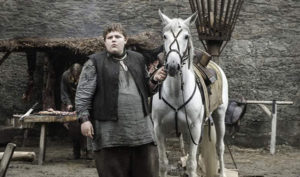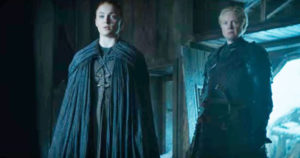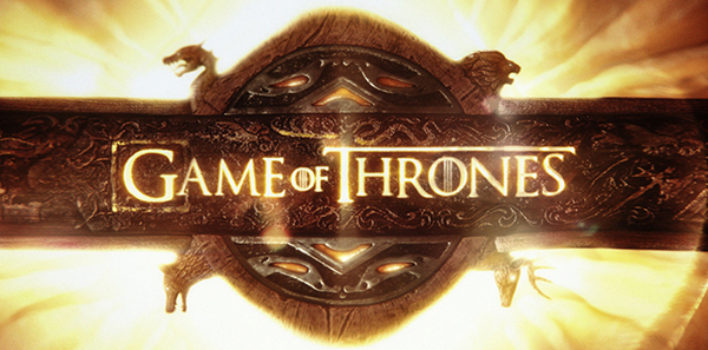Game of Thrones: S06E05 The Door
 Here’s a question: do you believe things happen for a reason? It’s a big question to be sure, but I’m guessing you answered right away. We’ve all wondered to some extent at how much fate or destiny controls our lives. Whether you answered yes or no there are many shades of gray to either side. If you believe all things happen for a reason, then your last trip to the restroom has eternal significance. If you believe nothing happens for a reason, then your local Ethics 101 professor would like to talk to you about a guy named Immanuel Kant. Either way, this week’s GoT episode gives us a chance to examine this huge idea that’s quite hard to define.
Here’s a question: do you believe things happen for a reason? It’s a big question to be sure, but I’m guessing you answered right away. We’ve all wondered to some extent at how much fate or destiny controls our lives. Whether you answered yes or no there are many shades of gray to either side. If you believe all things happen for a reason, then your last trip to the restroom has eternal significance. If you believe nothing happens for a reason, then your local Ethics 101 professor would like to talk to you about a guy named Immanuel Kant. Either way, this week’s GoT episode gives us a chance to examine this huge idea that’s quite hard to define.
Before we get too philosophical, let’s back up for a minute and examine our landscape first. This episode is largely about allies. Some alliances are being forged, some are being broken. There is a war coming, the scope of which is not yet certain, but it is being felt across the entire continent of Westeros to the outer lying islands and across the narrow sea. Everyone is preparing for their next move.
Sansa is playing a bit of politics as she prepares to war for her home. Refusing a helping hand from her painful past, she chooses to ally closely with family. Tyrion continues his own politics on behalf of Daenerys, and goes against his better judgment to ally with a sorceress of the Lord of Light. Daenerys herself finally extends an olive branch to Jorah despite having cast him out twice. And Arya, who seemed clearly allied with the Faceless Men last week, now appears to waiver in her commitment. After all these characters have experienced, you can’t blame them for their current partnerships. It remains to be seen how they’ll all fare.
 Caution is always advised in the land of ice and fire. But if things happen for a reason, is caution even worth taking? Are we just fated to a certain outcome no matter what we do? That’s a slippery slope to fall down into. After all, believing there is a reason for things is essentially illogical. It goes against the physical nature of things. It means that fate takes control out of our hands and surrenders us to its whims, right?
Caution is always advised in the land of ice and fire. But if things happen for a reason, is caution even worth taking? Are we just fated to a certain outcome no matter what we do? That’s a slippery slope to fall down into. After all, believing there is a reason for things is essentially illogical. It goes against the physical nature of things. It means that fate takes control out of our hands and surrenders us to its whims, right?
Well, such was the case for Hodor, at least. Thanks to Bran’s misuse of his power, Hodor’s whole life was altered to be fated to one very specific moment. It was heartbreaking, but meaningful and essential to the continuation of the story. That’s exactly what being surrendered to simple fate can feel like. Like we’re just fodder for the continuation of the story of life. That’s a helpless feeling.
It gets worse when you realize how deep the rabbit hole goes. Bran’s ability to affect the entire life of one person means he could be responsible for every single thing that has happened in our story. Think about that. Everything- from the Mad King Aerys to Robert Baratheon’s rebellion to the White Walkers to his own family members’ deaths- everything could be his fault. Or the fault of someone like the Three Eyed Raven with similar ability to change the course of history. This is speculative, of course, but the story may hinge on what the (ever annoying and selfish) Bran could have done and might yet do. As crazy and scary as the idea of destiny like that can be, a lot of people, Christians included, believe that’s how it works.
So maybe we’re all on a ship without a steering wheel headed into oblivion, and maybe we’re not. What I believe comes from the words of the apostle Paul in the book of Romans. I believe all things work together for good for those who know and love God. How we define “knowing” and “loving” God I think is deeply nuanced and not left at the surface meaning of the words. That’s a discussion for another day. Things working together for good is far more reassuring than simple fate. It doesn’t mean that life will be sunshine and roses, but it means that we have help. It means that we aren’t just destined for the cold, dark earth in the end.
 A couple episodes back I made the parallel of Jon Snow to Lazarus. They both died. Their fate seemed sealed. Then they both came back from the dead. These are examples of things working together for good. These things had a reason, but they aren’t exactly nice and pretty. And of course, this isn’t a firm answer or a rock hard statement to stand on. The ability of good things to come from destiny goes beyond simple fate. It has more power, more resonance. After years of a seemingly dismal view on fate, I think that’s something our story is tapping into. It may still mean we meet an end by holding a door for a friend, but there’s power in knowing that it works for our good, whether we can really define what that means or not.
A couple episodes back I made the parallel of Jon Snow to Lazarus. They both died. Their fate seemed sealed. Then they both came back from the dead. These are examples of things working together for good. These things had a reason, but they aren’t exactly nice and pretty. And of course, this isn’t a firm answer or a rock hard statement to stand on. The ability of good things to come from destiny goes beyond simple fate. It has more power, more resonance. After years of a seemingly dismal view on fate, I think that’s something our story is tapping into. It may still mean we meet an end by holding a door for a friend, but there’s power in knowing that it works for our good, whether we can really define what that means or not.








Love these, Mark! Keep it up!
Thanks Alexis!